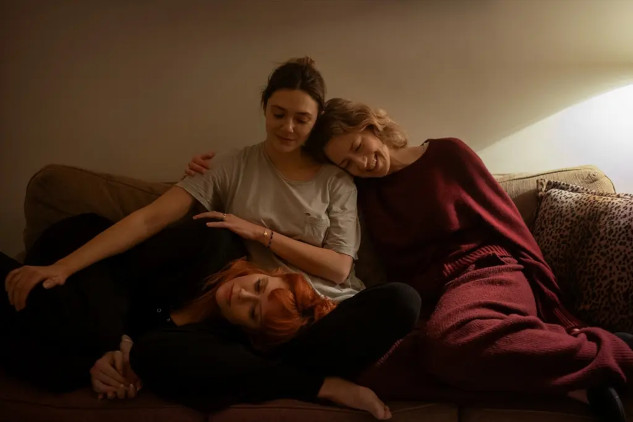
In this Article:
- Can sibling feuds lead to lifelong estrangement?
- How did the Oasis reunion happen after years of estrangement?
- What role does counseling play in sibling conflict resolution?
- How can family patterns contribute to sibling rivalry and estrangement?
- What steps can be taken to rebuild sibling relationships?
How to Heal a Sibling Feud Before It’s Too Late
by Ramona Alaggia, University of Toronto.
Is it possible that Liam and Noel Gallagher of Oasis have resolved their longstanding sibling feud well enough to be able to mount, and follow through on, a world concert tour after 15 years of estrangement?
And if so — does that mean our own sibling feuds can be healed?
In the 1990s and early 2000s, the antagonism between the Gallagher brothers resulted in epic confrontations that included physical blows on and off stage.
It seemed unimaginable that such a renowned sibling feud would end — and then suddenly the “guns fell silent” and the brothers announced a long-awaited Oasis reunion tour.
Sibling feuds aren’t unusual
The reunion offers an excellent opportunity to examine what it takes to resolve a sibling feud permanently, when you’re young enough to prevent it from becoming a lifelong estrangement.
First, when it comes to siblings, it’s important to know that conflict is a natural and normal part of family life and contributes to developing relationship skills. Sibling rivalry and feuds aren’t unusual — we probably all know someone who’s experienced one — and are intricately intertwined in the complexities of the wider family system.
Seminal research into family dynamics by American psychiatrist Murray Bowen found that families operate in patterns of interactions that they can become stuck in.
Without intervention, like a brief course of psychotherapy, family members can repeat dysfunctional patterns throughout their lives.
Abuse, violence
In the case of the Gallagher brothers, their family environment featured abuse and violence used to express anger and frustration.
There was little evidence of healthy conflict resolution in the home where the Gallagher brothers grew up, as both Noel and their mother were often abused by their father.
Canadian-American psychologist Albert Bandura’s social learning theory speaks to the powerful influence of relationship modelling in those formative years of childhood development. Growing up in a home where both physical and emotional abuse are normal leaves a strong maladaptive impression on how adults deal with anger and frustration.
As children, we often mimic these behaviours, sometimes well into our adult lives. This doesn’t mean all kids who grew up in abusive homes go down the path of dysfunctional relationships — many can and do rise above their circumstances and break the cycle of violence in adulthood.
Important turning points
My research has found people who grew up in abusive homes can break that cycle via turning points — life transitions that provide potential opportunities for resilience-building. These turning points — which can include meeting a positive life partner, the birth of a child or the death of a parent — may account for those who are able to escape the downward spiral. These types of life events can activate a new world view or insights into living a better life.
Changing how you deal with conflict in current relationships, including with your siblings, requires undoing the dysfunctional, internalized relational modelling of your childhood.
Insight, self-awareness to do and be better, and therapy are often necessary to change those ingrained patterns and pre-conditioned responses.
Dealing effectively with a high degree of conflict in a sibling relationship — like we’ve witnessed with the Gallaghers and another high-profile brother feud between Britain’s Prince William and Prince Harry — most likely requires an intervention of some sort to heal long-standing animosity.
How counselling can lead to resolution
If Noel and Liam, William and Harry — or you and your estranged sibling — seek help to resolve longtime feuds, intervention dyadic counselling would likely be part of the process.
That entails learning and practising conflict resolution strategies in therapy sessions. Models of conflict resolution strategies almost always include practising the following principles: (open) communication; active listening; reviewing options; collaboration; compromise; and agreeing on a win/win solution. Apologizing and avoiding blaming statements are part of the exercises.
Most importantly, learning to regulate strong negative emotions is at the core of this type of therapy. That includes finding tools to deal constructively with anger, jealousy and fear to avoid being negative and escalating conflict cycles.
Cognitive behavioural techniques, meditating and mindfulness, breathing and counting are all tools employed to de-escalate rising emotions by activating the rational, calm region of the brain.
The toxic role of drugs and alcohol
Practising abstinence in terms of substances is also advised, since substance use can be a disinhibiting factor.
We only need to turn to the stories of the alcohol- and drug-fuelled antics that were part of the Oasis tour scene of the past to remember at least part of the reason why the band broke up. Band members quit as a result of the brother’s toxic relationship well before the final split in 2009.
Drug and alcohol abuse causing problems for musical acts isn’t unusual — American rock band Jane’s Addiction is the most recent casualty.
What will make this Oasis tour work and the brothers to remain reunited? How can you ensure your own sibling feud doesn’t become a lifelong and stressful feature of your own life?
Booster therapy sessions (in Oasis’s case, this would mean having an on-tour counsellor), mediation sessions for when conflicts arise and staying sober and clear-headed whenever possible are good strategies for success.![]()
Ramona Alaggia, Professor, Social Work, University of Toronto
Article Recap:
This article examines sibling feud resolution and the potential for healing estranged relationships, using examples such as the Oasis reunion. By exploring family therapy techniques, emotional regulation, and the effects of family dynamics, the article offers insights into how siblings can move past long-standing conflicts. Learn the tools necessary to rebuild relationships and prevent lifelong estrangement, with emphasis on communication, compromise, and healthy conflict resolution strategies.
This article is republished from The Conversation under a Creative Commons license. Read the original article.

Related Books:
Crucial Conversations Tools for Talking When Stakes Are High, Second Edition
by Kerry Patterson, Joseph Grenny, et al.
The long paragraph description goes here.Click for more info or to order
Never Split the Difference: Negotiating As If Your Life Depended On It
by Chris Voss and Tahl Raz
The long paragraph description goes here.Click for more info or to order
Crucial Conversations: Tools for Talking When Stakes Are High
by Kerry Patterson, Joseph Grenny, et al.
The long paragraph description goes here.Click for more info or to order
Talking to Strangers: What We Should Know About the People We Don't Know
by Malcolm Gladwell
The long paragraph description goes here.Click for more info or to order
Difficult Conversations: How to Discuss What Matters Most
by Douglas Stone, Bruce Patton, et al.
The long paragraph description goes here.Click for more info or to order





















